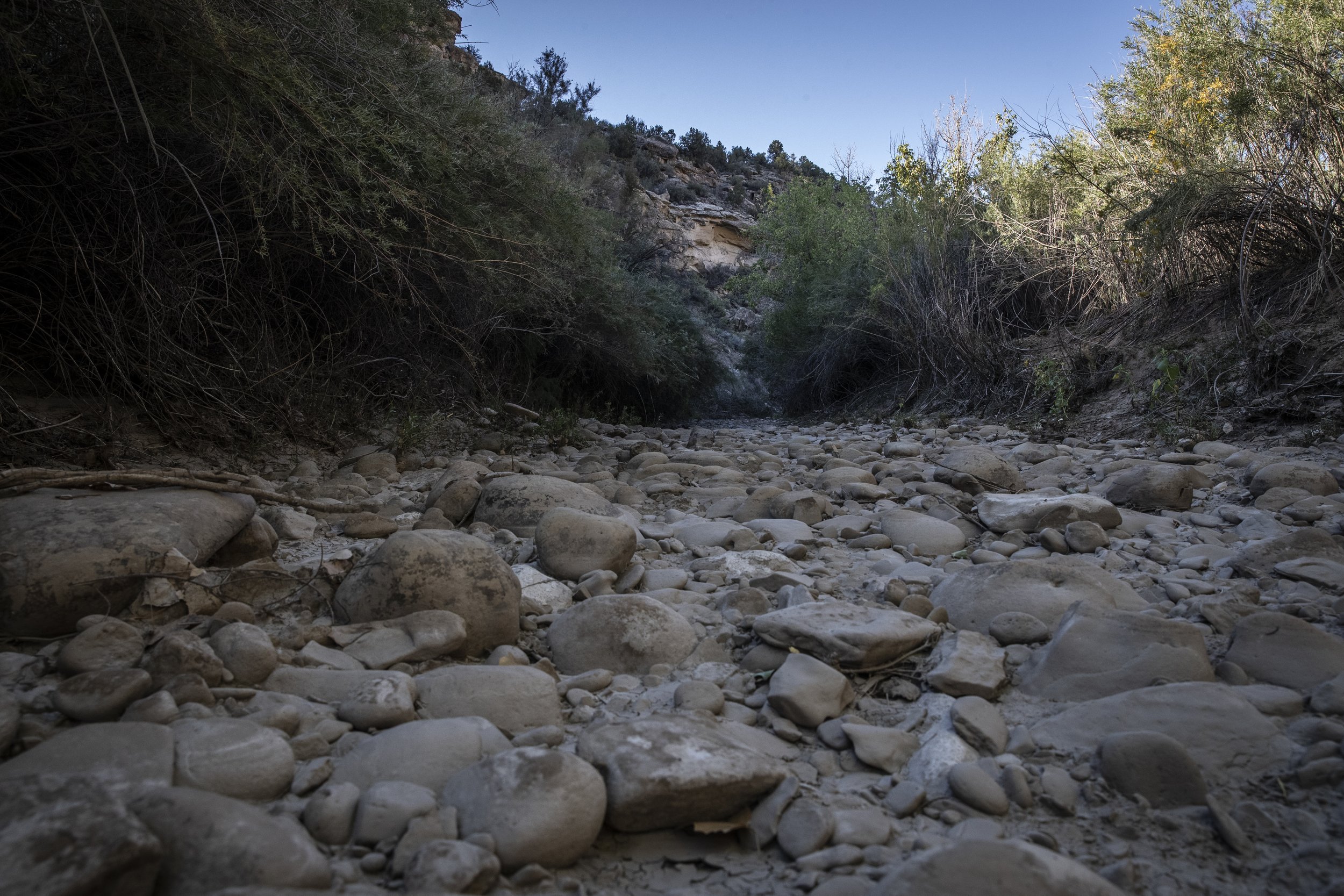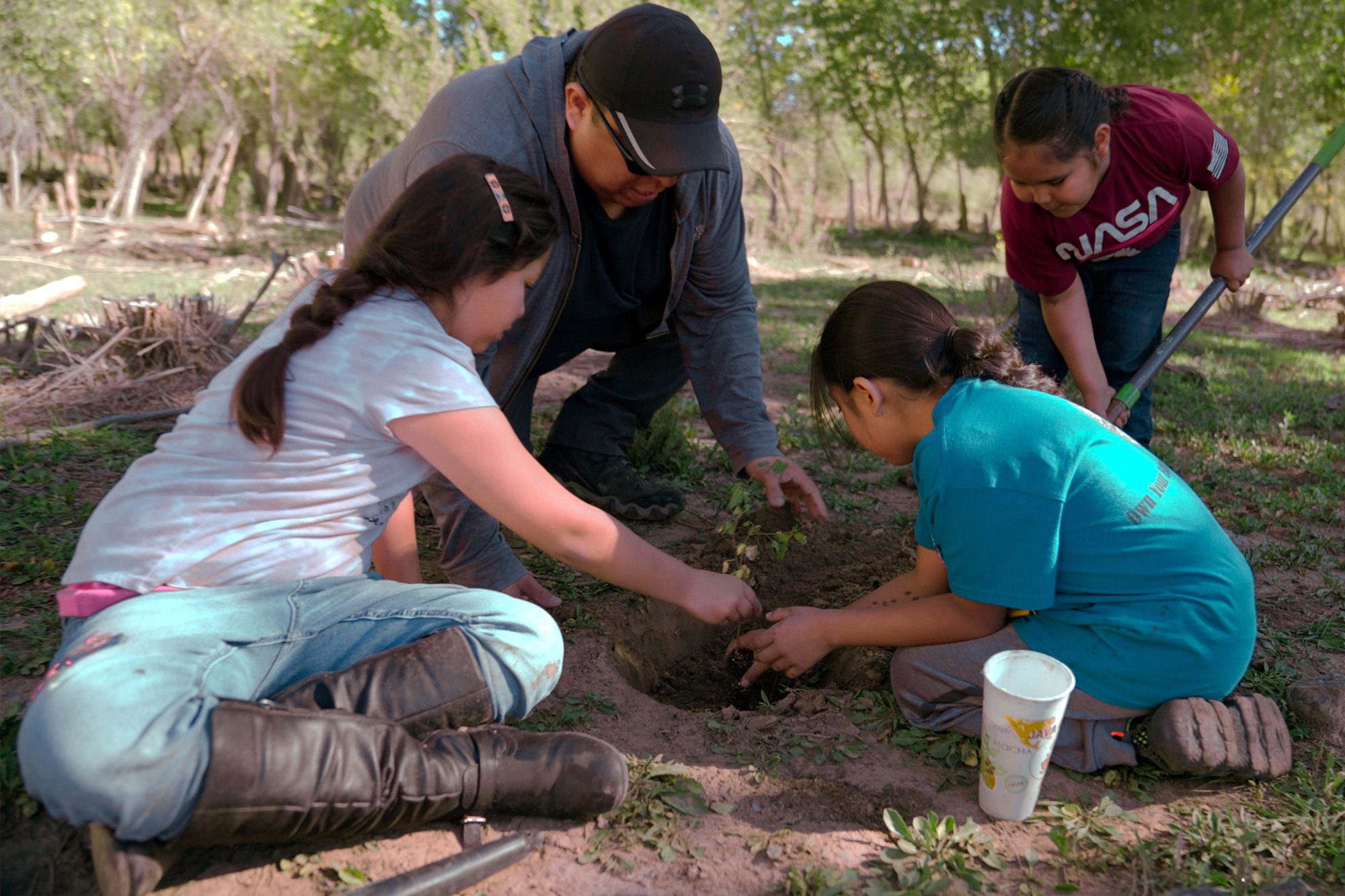
COLORADO
Riparian areas across the Western U.S. are disappearing in response to climate change and other factors. On Ute Mountain Ute Tribal and ancestral lands in southwest Colorado, this loss impacts tribal members who depend on riparian areas along the Mancos River for cultural preservation, traditional harvest, and livelihoods. Many culturally and ecologically important plants that used to thrive along the Mancos River are being out-competed by invasive tamarisk (also known as salt cedar or Tamarix spp.) and herbaceous weeds, and traditional plants are harder for Tribal members to find. Numerous wildlife species also depend on healthy riparian areas, and as the native vegetation is lost, wildlife also becomes less abundant.
Trees, Water & People (TWP) has been working with the Ute Mountain Ute Tribe and other local partners since 2020 to build climate and ecosystem resilience across culturally and ecologically important riparian areas along the Mancos River. Together, we focus on restoring the ecological processes that have been disrupted in order to move towards a more climate-resilient ecosystem. By blending Traditional Ecological Knowledge, common restoration practices, and University-led research, we have implemented innovative approaches to revegetation with culturally important species, weed treatment and improving impaired hydrology along the Mancos River. This work has been accompanied by ongoing, collaborative stewardship efforts across the watershed, on Tribal, private, and federal lands, to achieve landscape-scale ecosystem resilience across the watershed.
Students from Kwiyagat Community Academy tree planting in Tribal restoration areas along the Mancos River
In recent years, students from Kwiyagat community Academy (KCA) have participated in tree planting in Tribal restoration areas along the Mancos River. KCA opened in 2021, is located on the Ute Mountain Ute Reservation, and is owned and operated by the Ute Mountain Ute Tribe. KCA currently serves 55 K-3 Indigenousstudents, and plans to grow by adding one grade annually to enroll 120 Tribal students in grades K-5 by 2025. TWP has been working with KCA to develop outdoor learning areas around the school grounds, including culturally relevant landscaping, raised bed vegetable gardens, and a traditional Three Sisters garden. We believe in supporting education through the traditional values of environmental stewardship, and are honored to participate in this project, which also includes the development of outdoor education curriculum and community gatherings.
Recent TWP Initiatives in Colorado include:
Supporting a Traditional Harvest Planning effort to build ecosystem resilience in native plant communities on Tribal lands and improve access to private ancestral lands for traditional harvest.
Working with Tribal community members to implement restoration projects on ancestral lands along the Mancos River, including noxious weed treatment and revegetation in native plant communities, and construction of low-tech, process-based restoration structures to improve impaired hydrology.
University-led research into improving restoration strategies in critical riparian and upland areas that are culturally and ecologically important.
Facilitation of community organization workshops to support Tribal youth development and summer youth programming.
Youth engagement in dryland and riparian restoration initiatives on Tribal lands.
Development of outdoor learning areas, associated curriculum, and community gatherings with Kwiyagat Community Academy.
Check out our Indigenous Lands page for the most up-to-date information. Please contact Zoe Bashkin (zoe@twp.org), Indigenous Lands Program Resource Coordinator if you have any questions.
Indigenous Lands Program Blog Posts






Trees, Water & People (TWP) is honored to have received the “Transformative Partner” award in recognition of our Indigenous Lands Program’s (ILP) work in New Mexico towards water resilience, multi-stakeholder facilitation and long-term watershed scale restoration planning.